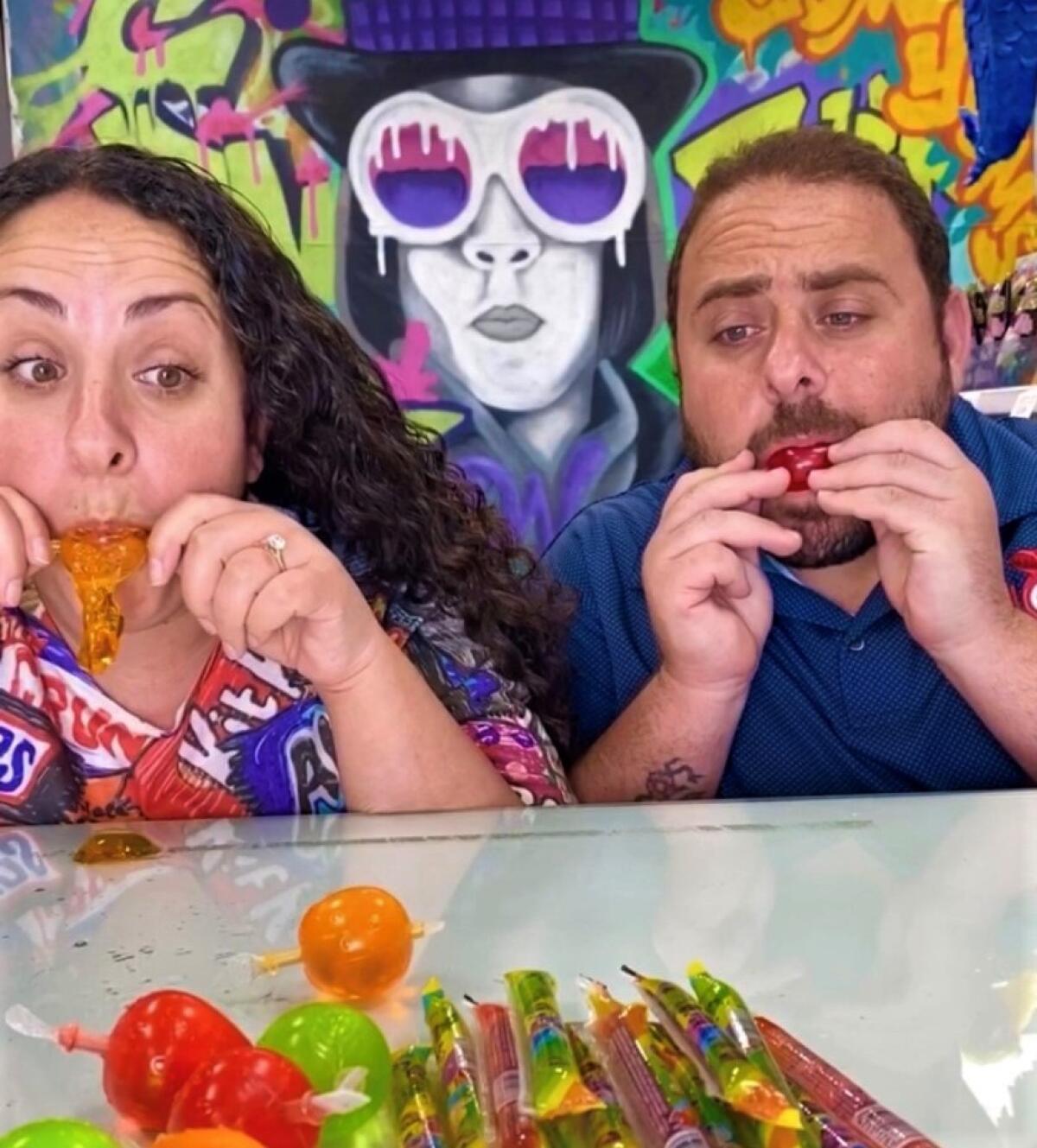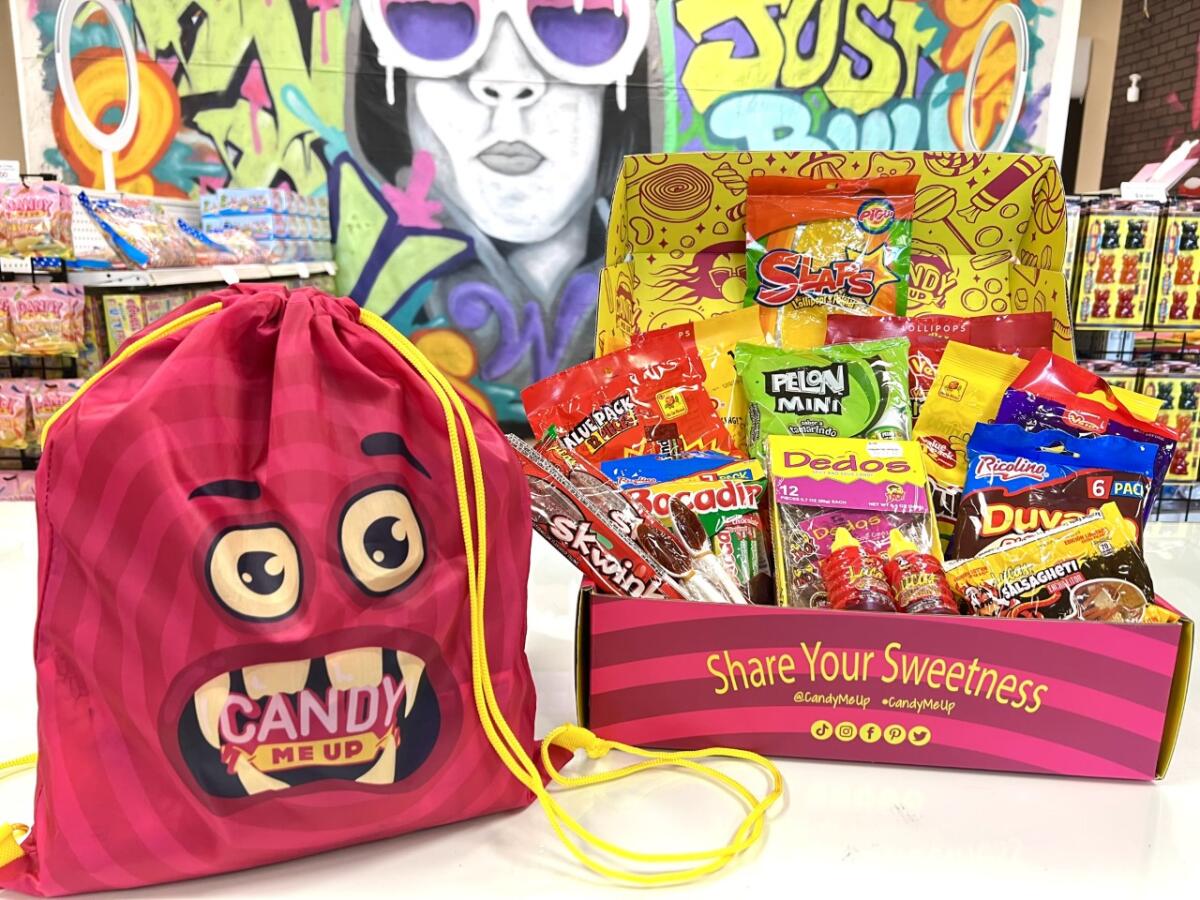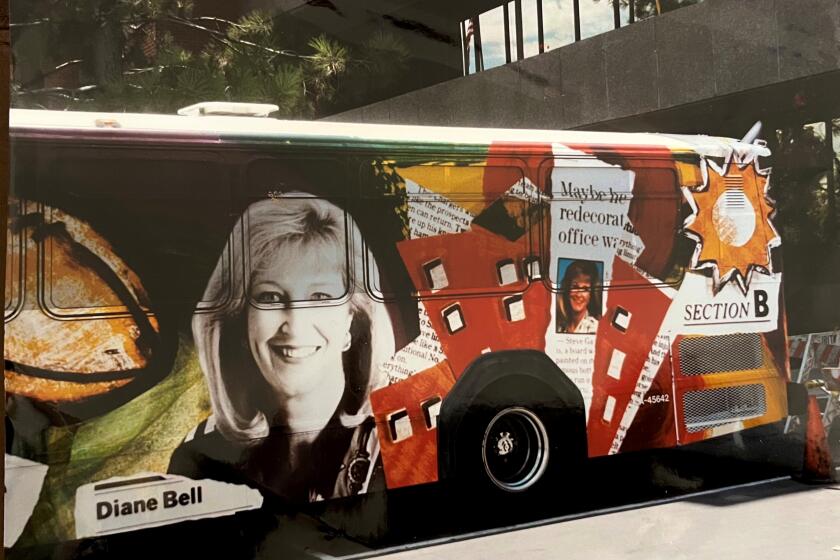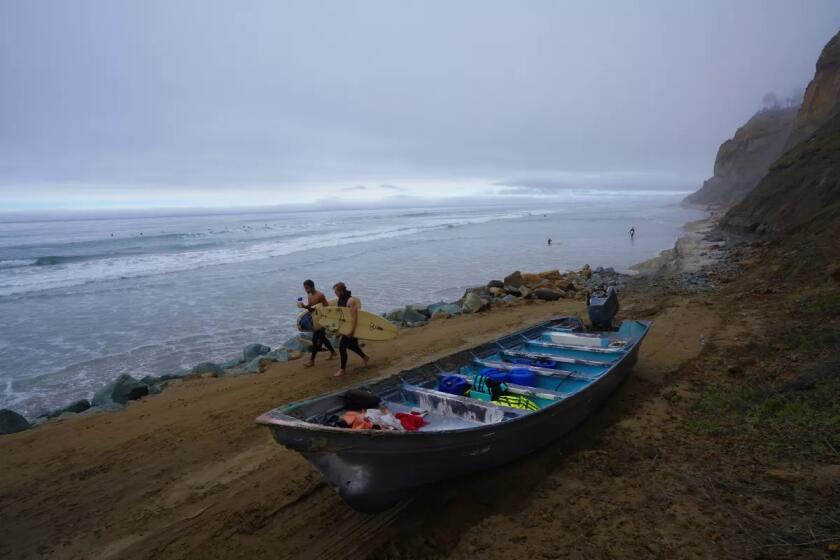Column: Struggling La Mesa business owes its survival to TikTok

Candy Me Up owner’s videos went viral on TikTok social media app, and sales have skyrocketed
The popular TikTok app has gotten its share of criticism, most recently as the bulletin board for users’ viral campaigns to vandalize school property.
But for La Mesa business owner Nema Causey, TikTok has proven a lifesaver.
If not for TikTok, she bluntly says she would have lost her business during the pandemic.
Her bulk candy retail store, Candy Me Up, on the outskirts of Grossmont Center mall, would have gone belly up. Instead, Causey, often in conjunction with her brother, Jonny Hallak, started making 15-to-90-second candy store videos and posting them on TikTok three or four days a week.
Her first video was shot in her warehouse, where she and Jonny displayed and ate Zombie Skittles, with flavors such as Boogeyman Blackberry, Mummified Melon, Petrifying Citrus Punch and a dreadful-tasting Rotten Zombie.
She subsequently posted videos of candy being stocked, orders being taken, sweets being packaged for online purchasers by name, unusual candies, treats being unwrapped and displayed, candy taste tests and candy eating challenges.
In one video, the siblings took part in the viral jelly fruit challenge, a competition in which participants bite on a jelly-filled candy and see if the juice goes in their mouth or pops out — splat.
In another, they taste-tested jelly sticks and jelly fruit (the sticks won hands down). They also concoct crazy recipes using candy.
Causey created a pandemic survival box of sweets, a box of Mexican candies, one for lovers of old-fashioned candy and, most recently, a Halloween-themed mix of scary candies in a customized drawstring pouch big enough for trick-or-treating.

It took about five weeks to gain momentum with the videos at her TikTok address: @candymeup.
Popularity didn’t come without a sacrifice. “I like my privacy,” Causey says. “I didn’t want to throw myself out there in front of the public.” But she put herself out there for the store’s survival and has become a candy celebrity.
Her first video to hit 1 million views showed Chick-O-Sticks being made by Atkinson Candy Co. Now, 1½ years after joining TikTok, she has chalked up 954,000 followers and 11.7 million views.
Her Instagram and Facebook accounts pale by comparison. After nearly a decade on Instagram she had attracted a modest following of 6,000.
“If you have 10,000 followers on TikTok, you can apply to be a creator and get paid per video, per view,” she says. “Our business is based off of TikTok right now.”
Causey’s new problem is keeping up with the orders, which come in from around the country — with numerous clients in New York, Florida and Chicago. She still runs her store, but now sells 90 percent of her product online.
Author Doug Stephens interviewed her early this year and included a segment in his book published in May: “Resurrecting Retail: The Future of Business in a Post-Pandemic World.” He explored how COVID-19 is reshaping consumers’ lives and how people shop.
On Oct. 19, Causey and Josh Nolan, the owner of a Santa Clara carpet repair business, took part in TikTok’s first online “Small Biz Block Party” to target California retailers. It teaches the basics of using TikTok to generate sales.
Nolan says his videos recording what he encounters on the job have resulted in people stopping him on the street and honking their horns as they drive by his truck. One fellow told him he was going to damage his carpet just so he could have Nolan come and fix it.
L.A. Mayor Eric Garcetti joined the session via video to promote a city service introduced in January to help small businesses walloped by the pandemic adapt to the digital marketplace.
Called LA Optimized, it offers tools and services to help them remain competitive and expand. Its Accelerator Academy offers webinars on the first Tuesday of every month exploring online platforms and apps for retail sales expansion, such as Shopify, Google, Facebook, Yelp and others.
Last May, the San Diego Regional Economic Development Corp. launched a San Diego Business Hub program to equip small businesses to go online. Announcing that a staggering 40 percent of our region’s small businesses had closed since the start of 2020, the EDC linked up with local tech company GoSite to offer up to 100 businesses an array of digital tools for free and a year of support.
SDbizhub.com is accepting applications from small businesses most affected by the pandemic — especially those operated by minorities, women and underserved groups.
Alexis Gallivan, head of small business engagement for TikTok, strived to dispel myths that TikTok is just for kids or for big brands with big budgets, or that making videos requires a huge learning curve.
“It’s a lot easier and faster than you may think,” she says, describing the site as a come-as-you-are type of place with real, raw, relatable humanity and unique stories, experiences and journeys.
Gallivan said TikTok is the most downloaded app in the United States since early 2020, attracting many users who are not on other social media. Its user-crafted videos introduce brands in creative ways. Its #TikTokMadeMeBuyIt feed, a retail appeal barometer, has generated 5.8 billion views.
Causey received a call last April from a TikTok rep who had seen her videos and asked her to participate in its campaign to reach ma-and-pa business owners. She was happy to oblige.
Not only do customers want to order her product nowadays, they literally want the shirt off her back. She often films videos wearing her store uniform — a T-shirt covered with candy wrappers.
Now Causey is getting manufacturer bids to add candy-themed shirts to her product line.
Get Essential San Diego, weekday mornings
Get top headlines from the Union-Tribune in your inbox weekday mornings, including top news, local, sports, business, entertainment and opinion.
You may occasionally receive promotional content from the San Diego Union-Tribune.












